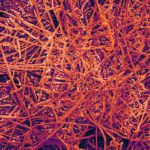Link to Pubmed [PMID] – 32380645
Toxins (Basel) 2020 May;12(5)
During infection, the foodborne bacterial pathogen dynamically influences the gene expression profile of host cells. Infection-induced transcriptional changes are a typical feature of the host-response to bacteria and contribute to the activation of protective genes such as inflammatory cytokines. However, by using specialized virulence factors, bacterial pathogens can target signaling pathways, transcription factors, and epigenetic mechanisms to alter host gene expression, thereby reprogramming the response to infection. Therefore, the transcriptional profile that is established in the host is delicately balanced between antibacterial responses and pathogenesis, where any change in host gene expression might significantly influence the outcome of infection. In this review, we discuss the known transcriptional and epigenetic processes that are engaged during infection, the virulence factors that can remodel them, and the impact these processes have on the outcome of infection.




